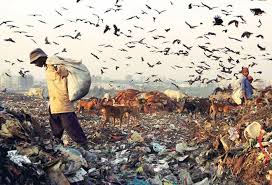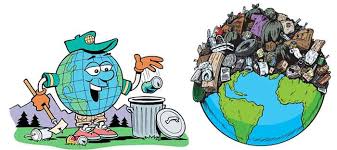Delve into the complexities of waste management in India, where burgeoning population growth and inadequate infrastructure pose significant challenges, yet innovative initiatives and sustainable practices offer hope for a cleaner, greener future.
Waste management in India stands at a crossroads, balancing the demands of a rapidly growing population with the imperative to protect the environment and public health. Governed by regulations emphasizing sustainable development and the principle of “polluter pays,” the country’s waste management landscape reflects a nuanced approach to addressing this pressing issue.India grapples with substantial challenges in waste management, as evidenced by its staggering annual waste generation of 62 million tonnes. Inadequate infrastructure and resources hinder proper waste collection and treatment, leading to a significant portion of waste ending up in landfills. Plastic waste, in particular, poses a formidable environmental threat due to its ubiquity and persistence in the ecosystem.
The Union Ministry of Environment, Forests, and Climate Change spearheads waste management efforts in India, advocating for sustainable practices and regulations. The Waste to Wealth Mission, under the Prime Minister’s Science, Technology & Innovation Advisory Council, seeks to harness global technological advancements to create socio-economic benefits from waste.Amidst the challenges, there are promising opportunities for transformative change in waste management. The adoption of the Solid Waste Management Act in 2016 and the subsequent revision of Solid Waste Management Rules demonstrate the government’s commitment to improving waste management practices. Cities like Ahmedabad have embraced ambitious zero waste goals, setting a precedent for sustainable urban development.

Effective waste management requires the active participation of citizens. Simple practices, such as segregating wet and dry waste at the source, can significantly reduce the burden on landfills and facilitate recycling and composting efforts. By conscientiously managing their waste, individuals contribute to building a cleaner and healthier environment for future generations.India ranks fourth in the Municipal Waste Index, underscoring the magnitude of the waste management challenge. However, the country’s proactive stance on plastic recycling and its pursuit of innovative solutions offer glimpses of progress amidst the daunting statistics.
As India continues its journey towards sustainable development, waste management emerges as a critical priority. By leveraging technological innovations, policy interventions, and community engagement, the nation can pave the way for a greener, cleaner future for all.
#WasteManagementIndia #SustainableDevelopment #PolluterPays #ZeroWasteInitiatives #PlasticRecycling #EnvironmentalChallenges #CommunityEngagement 🌍




